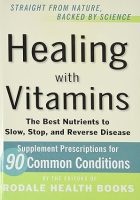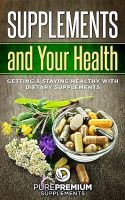Introduction
Supplements play a crucial role in supporting our overall health and well-being by providing essential nutrients that may be lacking in our diets. They can help bridge the gap between our nutritional needs and what we actually consume, especially in today’s fast-paced lifestyle where maintaining a balanced diet can be challenging. Whether it’s vitamins, minerals, or herbal supplements, they can complement our diet and support various aspects of our health, from immune function to skin health to energy levels. However, it’s important to choose supplements wisely, consulting with healthcare professionals if needed, to ensure they are safe and effective for our individual needs.

Benefits of Good Supplements

Filling Nutrient Gaps

Supporting Specific Health Goals

Enhancing Overall Health

Convenience

Managing Health Conditions
Types of Supplements
Vitamins
Nutrients that the body needs in small amounts to function properly. Common vitamins include vitamin C, vitamin D, and the B vitamins.
Minerals
Essential minerals include calcium, magnesium, iron, and zinc, among others. These minerals play important roles in various bodily functions.
Herbal Supplements
These are derived from plants and may include extracts, powders, or teas. Examples include Echinacea, ginseng, and turmeric.
Protein Supplements
Often used by athletes or those looking to increase their protein intake. They can come in the form of powders, bars, or shakes.
Fish Oil
A source of omega-3 fatty acids, which are important for heart health and brain function.
Multivitamins
These contain a combination of vitamins and minerals and are often used to ensure adequate intake of essential nutrients.
Choosing the Right Supplements
1. Certifications
2. Ingredients
3. Dosage
4. Bioavailability
5. Avoiding Contaminants
6. Consult with a Healthcare Professional
7. Consider Individual Needs
1. Research Brands
2. Consult a Healthcare Professional
3. Read Labels Carefully
4. Consider Form and Dosage
5. Check for Third-Party Testing
6. Avoid Unrealistic Claims
7. Consider Your Diet
Video References
"How to Choose a High-Quality Supplement" by Dr. Josh Axe
"The Truth About Vitamins & Supplements" by Dr. Tieraona Low Dog
"Supplements: Who Needs Them?" by Dr. Rhonda Patrick
Popular Supplements
1. Vitamin D
Known as the “sunshine vitamin,” vitamin D is essential for strong bones, immune function, and mood regulation. It also plays a role in calcium absorption
2. Omega-3 Fatty Acids
Omega-3s are important for heart health, brain function, and reducing inflammation in the body. They are commonly found in fish oil supplements.
3. Probiotics
These supplements contain beneficial bacteria that support gut health and digestion. They may also boost immune function and improve mental health.
Safety and Side Effects
1. Consult a Healthcare Professional
2. Follow Recommended Dosages
3. Watch for Allergic Reactions
4. Be Aware of Interactions
5. Monitor for Side Effects
6. Choose Reputable Brands
YouTube Tutorials
Vitamin D
Supplement Safety: What You Need to Know
Understanding Supplement Labels: Dosage and Safety Tips
Potential Side Effects of Popular Supplements
Podcasts Library
"The Nutrition Diva's Quick and Dirty Tips for Eating Well and Feeling Fabulous"
Books Library
"Healing with Vitamins: Straight from Nature, Backed by Science - The Best Nutrients to Slow, Stop, and Reverse Disease" by M.K. Gupta
Link: Buy on Amazon India

"Nutritional Supplements in Sports and Exercise" by Debasis Bagchi and Sreejayan Nair
Link: Buy on Amazon India

"The Complete Book of Ayurvedic Home Remedies" by Vasant Lad
Link: Buy on Amazon India

"Supplements for Health: Your Guide to the Best Natural Products" by B.V. Rao
Link: Buy on Amazon India

